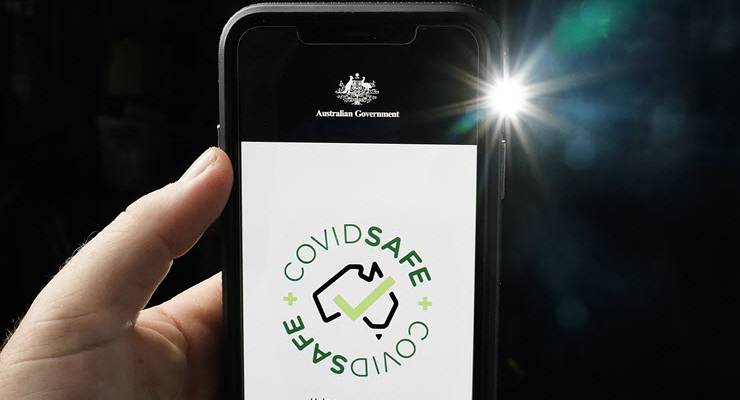
Crikey readers are an engaged lot, and we want to hear your thoughts. Today we’re introducing a regular letters column, Your Say, to share some of your correspondence. So next time one of our writers gets you fired up, drop us a line at letters@crikey.com.au, and include your full name to be considered for publication. Letters may be edited for length and clarity.
This week, Bernard Keane’s writing about the COVIDSafe app prompted many of you to tell us how little you trust the government, while Jason Murphy’s analysis on Australia’s trade relationship with China got other readers thinking about the stakes involved. And the Nationals’ infighting earned a comparison to bickering on reality television.
On the flaws of the COVIDSafe app:
Penny Martin writes: There’s no way in hell I would download the COVIDSafe app, because I trust neither the app (which by all reports is very dodgy) nor the federal government, which by its own actions has proved itself to be totally untrustworthy.
Ross Grange writes: Do I trust the app? Short answer is NO. Not yet anyway. If it is so important for the nation then why wasn’t the parliament recalled to pass the obviously very important “safeguard” legislation regarding its use? Perhaps after the passage of this legislation I may consider its downloading.
On Australia’s trade relationship with China:
John Nightingale writes: Clearly, Jason’s comment that, “Chinese students who have spent time in Australia and returned home are a group more inclined to return, more inclined to trade with Australia, and also a political bloc disinclined to knee-jerk antagonism of Australia” is so obvious, empirically supported by our experience of generations of overseas students from the Colombo Plan in the ‘50s onward.
The question is why an Australian government could possibly risk this by treating more than a single year’s cohort so badly? I am puzzled at the crass stupidity of Morrison, Frydenberg and Cormann in their designing support during this crisis so ridiculously badly. No further comment on all the other equally stupid and small-minded aspects of JobSeeker and JobKeeper.
Bruce Graham writes: Perhaps I am missing something. Most Australian iron ore goes to China. Australia is the world’s largest exporter of iron ore, and China is the world’s largest importer. China is also a massive net importer of coking coal, alumina, and food.
Australia may feel threatened by Chinese suggestions of trade penalties. China does feel at risk (and rightly so) by its chronic dependency on raw material imports. China will actively diversify its supply chain where possible.
In 1937, the USA placed an oil embargo on Japan. The British supported this. This, more than any other action, made WWII inevitable. The message is well remembered in China. Australia may be afraid of what China will do to unruly trading partners. China is chronically fixated on what unsupportive raw material suppliers might do to it.
Trade dependency is a two-way street, with higher stakes than money.
On Nationals behaving badly:
Marian Arnold writes: Malcolm Turnbull spoke of power with purpose. What is the purpose of the National Party but to provide their constituents with the impression that despite their distance from any “big smoke”, they still have relevance and their voice is heard, hence power. Country people can be well equipped with large chips on their shoulders. Purpose, in some instances, can be to ensure coal miners and other fossil fuel businesses get free rein. In other instances to ensure their own pockets become well lined, and in a couple of instances to provide good representation for their constituents — the decent ones.
Dear old Joh Bjelke-Petersen, him of the brown paper bags filled with cash and the gob-smacking gerrymander, suffering from delusions of granduer, and having a run for PM, did them no favours by engineering the name change from Country Party to National Party. It is not a national party, predominantly holding country seats in Queensland, NSW and Victoria.
Their initial agrarian socialist purpose has been totally subsumed by a desire for power without broad purpose at all.
Terry Giesecke writes: We have always believed that party disunity leads to a backlash at election time. But it’s not true. Popular reality TV shows feature people bickering all the time so perhaps voters think that this is normal, displays of harmony are aberrant.
But past politics also show that party disunity is not always a problem. In the 1957 Queensland election the ALP was split but there was a small swing away from the Liberals, as there were two labor parties the vote was split between them so with first past the post neither labor party was able to get a majority. In the 1973 South Australian election the Liberals were riven between the LCL and Steele Hall’s Liberal Movement. Did they lose votes? No, they actually picked up a seat.







Quote: “Crikey readers are an engaged lot, and we want to hear your thoughts. Today we’re introducing a regular letters column, Your Say, to share some of your correspondence.”
Strewth, what a great new idea to introduce to Crikey. I assume that any resemblance to the Comments section that disappeared over the Christmas / New Year break is purely coincidental.
But this column has a fresher, newer,newly minted newbidity to it don’t ya think 😉
ANAO (the Audit Office) said that at the time of writing the review of the cybersecurity for the My Health Record [late 2019] the ADHA (Australian Digital Health Agency) had not conducted an end-to-end privacy risk assessment of the My Health system’s operation under the opt-out model. The most recent privacy impact assessment was in 2017, while the four privacy reviews between October 2017 and June 2019 cost $3.6m but were not completed.
So there’s its cybersecurity for you!